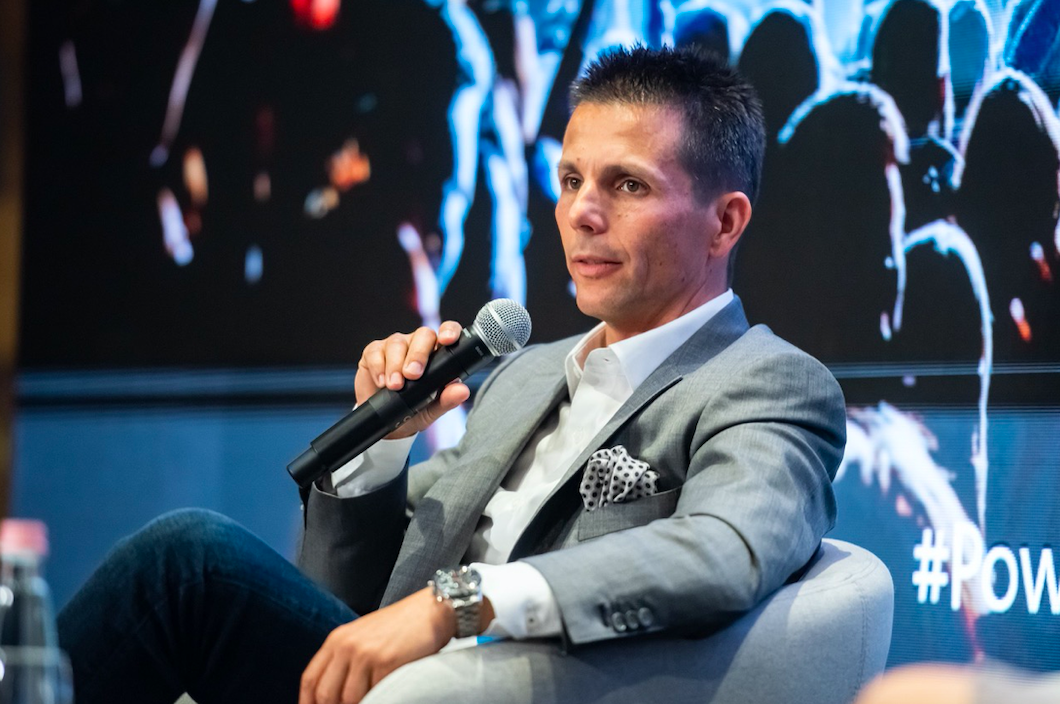How can event organizers survive the long crisis in Hungary?
English"The number of events has practically dropped to zero from one moment to the next, so our revenues have fallen dramatically, and we don't know when the market will start again," Zsolt Kassai, CEO of event technology company Special Effects International told Növekedés.hu.
You have been the CEO of one of the largest event technology companies for several years. What does the shutdown enforced by COVID-19 mean in the life of a medium-sized company with a turnover of 3-4 billion?
This is a very difficult and uncertain period that is severely affecting the whole industry.
The number of events has virtually dropped to zero from one moment to the next, and, at the same time, our revenues have fallen dramatically and we don’t know when the market will restart.
We committed ourselves to spending these months as usefully and creatively as possible, and so we started projects that we wouldn’t have had time for in the normal course of business.
With extensive market research, we identified how expectations would change because of the pandemic; and what changes would be needed in the event industry in the future. This is how our Meet Safe security protocol, based on Design Thinking, was created.
We also provided professional training for our colleagues while they were working from home, developed and introduced a process management software tailored to our own needs, searched for new market opportunities and kept in touch with the market.

Since the virus appeared, events and exhibitions have been cancelled almost everywhere in the world, and most hotels and conference venues that you used to supply with technological equipment have closed down. Since your company is highly present in the international market, how has this affected you?
Most of our clientele is foreign; we have already worked all over the world.
We started to realize that there was a problem at the beginning of February, as international events were the first to stop, and then the same thing happened on the Hungarian market a few weeks later.
In hotels in Budapest, foreign clients were the first to cancel events, and later domestic customers followed suit.
During the spring, we were still hoping that the situation in the event industry would somehow normalize by the autumn, but now we already understand that international business travel will not resume in 2020.
What measures have you taken to mitigate the effects of the crisis?
We collected our receivables, rescheduled our debts, but managed to pay all our suppliers.
The most important thing is that we are trying to optimize our costs and are constantly looking for alternative market opportunities, as we have free workforce, modern equipment and our will to work is unwavering. Since the beginning of the crisis we have been involved in shipping, and we have also mobilized our sales and communication team in various areas. We have forged close ties with several other companies who we will be happy to work with in the future, too.
Have you used any state support?
With 140 employees, our biggest fixed cost is wages and contributions, so the reduction of contributions and the wage subsidy were a great help to our company. Unfortunately, it would still be a necessary and effective help to the whole sector so that we can retain our invaluable skilled workforce.
How do you, as a leader, feel about the difficulties you are facing now, which are no fault of yours?
Together with the owners of Special Effects Ltd, we are trying to remain optimistic even in the most difficult situation. We immediately recognized that instead of panic and passive anticipation, a new approach and a proactive attitude would be needed to get through this period. Fortunately, the entire team shares this disciplined, determined and proactive attitude. We had to step out of our comfort zone; and we had to put the energy and knowledge we had gained over the years into something new.
Our market research I mentioned earlier clearly showed that events will never be the same again as they used to be before the pandemic, so we want to play an active and dominant role in working out the new standards.
When Meet Safe was born, we wanted to create not just a practical guideline, but a collection of unique, creative solutions that could potentially define live events in the future.
We are convinced that every crisis and change offers new opportunities, so we would like to find these opportunities and turn them to our advantage at Special Effects.
When do you think everyday life and, most of all, your previous successful business can return to normal? How deep is the economic downturn, in your opinion?
It is already clear that we need to prepare for a protracted crisis, and international business travel will be one of the last to resume. When we get back to normal, it will definitely be a ‘new normal’, as health safety will play a bigger role in everyday life than ever before, so the rules for live events will also have to change.
In my opinion, we cannot expect a significant increase in demand and a recovery in our revenues until the autumn of 2021 or the spring of 2022, at the earliest.
